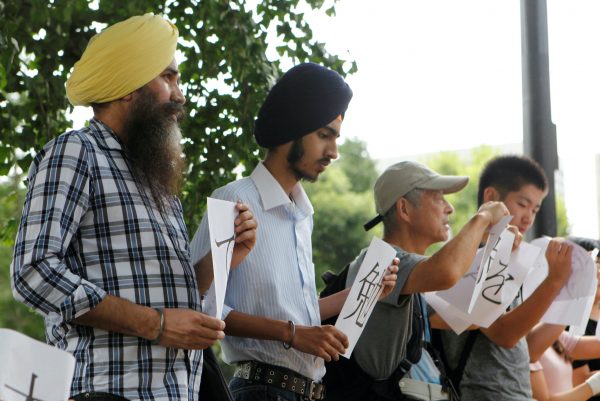Throughout former Japanese prime minister Shinzo Abe’s administration, immigration was an important political issue. Political debates on immigration — a traditionally taboo topic in Japanese politics — flourished. Abe’s aim of increasing ‘semi-skilled’ foreign workers, not ‘immigrants’, led to the 2018 reform of Japan’s national immigration law, the Immigration Control and Refugee Recognition Act (ICRRA). A series of political debates reflected a significant shift from the country’s long-lasting resistance to immigration.
Yet, in Japan, the reception of refugees and asylum-seekers is still an elephant in the room. In contrast to the recent immigration policy reform, Japan has not seen any substantive changes to its refugee and asylum policy. According to Japan’s Ministry of Justice (MOJ), refugee status was granted to only 44 out of 10,375 asylum applications in 2019. This translated to an annual recognition rate of 0.42 per cent. Since 2012, the success rate of asylum applications has remained below 1 per cent. Japan has consequently been criticised for its very limited refugee intake.
Many refugee experts, including lawyers, scholars and refugee-supporting agencies in Japan have demanded that the government accept more refugees and meet its international responsibilities to asylum-seekers as the world’s third-largest economy. Refugees and asylum-seekers could help Japan reduce its national labour shortages caused by a rapidly ageing population. Yet there is no indication that the Japanese government will expand the country’s refugee intake in the near future. Rather, the current Liberal Democratic Party (LDP)-led coalition government and the MOJ — the authority in charge of refugee and asylum screening — have tightened the country’s refugee admission system further.
In September 2015 and again in January 2018, the government made amendments to the MOJ’s operational code to hasten the refugee screening process and deal with an upsurge of asylum requests from apparently ‘fake’ refugees. After the death of a detained asylum-seeker on a hunger strike in 2019, the government established a panel to discuss a possible amendment to the ICRRA to better enforce detention and deportation. Many lawyers and refugee-supporting agencies were alarmed by the panel’s recommendations because they could worsen the treatment of asylum-seekers in detention centres and violate international human rights laws.
Under the current LDP administration, the number of asylum seekers who are granted ‘complementary protection’ beyond the scope of the 1951 Refugee Convention has steadily decreased. The MOJ could issue special stay permits for some asylum seekers who are denied refugee status but still need protection on humanitarian grounds, and the former Democratic Party of Japan (DPJ) government of 2009 to 2012 used this system more flexibly. After the LDP returned to power in 2012, the issuance of humanitarian visas tightened. Recent figures are much smaller than the number of special permits issued under the DPJ, suggesting that Japan’s strict refugee screening system is tied to the LDP government’s rigid policy stance.
The Japanese government has repeatedly explained that its refugee screening program under the ICRRA is congruent with the 1951 Refugee Convention and other human rights treaties that Japan has acceded to. The government used the same explanation to legitimatise the country’s refugee recognition system when responding to UN criticism in 2020. Although it may be difficult to prove that Japan’s tough refugee screening is against international law, many refugee experts have identified several procedural and institutional flaws in Japan’s refugee screening system.
Still, there are several reasons behind Japan’s very limited refugee intake, and as both the government and the MOJ have claimed, a growing number of fraudulent applications for refugee status need to be addressed in a stringent manner. That said, the Japanese government should also reconsider how it could improve and expand the protection of genuine refugees. This approach is missing in the government’s current discourse.
This is not the first time Japan has faced international criticism on its refugee policy. The government needs to take the United Nation’s criticism more seriously. It should take immediate action to review some of the frequently criticised refugee screening measures. Importantly, as a signatory to the 1951 Refugee Convention, Japan should not leave behind anyone who meets the Convention’s definition of refugees. It remains unclear how Prime Minister Yoshihide Suga intends to approach issues around refugees and asylum seekers and the criticisms against the country’s refugee policy.
Hirotaka Fujibayashi is a PhD candidate in the Department of International Relations and Political Science at the Graduate Institute of International and Development Studies (IHEID), Geneva.

